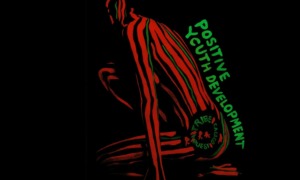JJ Today reported over the summer about some serious implications of states coming into compliance with the Adam Walsh Act, which was signed by President George W. Bush in 2006. To sum up: Following the act’s guidelines on sex-offender registries would mean including anywhere from a handful to thousands of youths on state and national registries for a very, very long time.
The Justice Policy Institute just released “Registering Harm,” a thorough report on the problems with the Walsh Act. It presents a bold idea for states: Don’t comply.
On its face, that sounds like crazy talk. The penalty for not complying with the Walsh Act by late July of 2009 is 10 percent of the state’s Byrne Grant money, which are supposed to help local governments improve justice systems. Low-population states would lose very little ($51,386 for South Dakota), big states would lose more than $1 million (California would lose more than $2 million), and the average state would lose somewhere between $150,000 and $300,000.
Almost every state is facing a serious financial crisis right now. Who is going to pass up federal dough at a time like this?
But JPI developed a methodology to calculate what the Walsh Act would cost to implement for 2009, and the figures are exponentially higher than the 10 percent Byrne cuts. The chart of implementation costs versus Byrne money (page 18 of the report) may very well end up being a persuasive tool to sell state legislatures on forgoing 10 percent of Byrne grants.
That is, if the report gets into the right people’s hands. “Registering Harm” was released with little fanfare and no press release from JPI, which is surprising, because one of the report’s authors, Nastassia Walsh, spoke about Walsh Act compliance at the recent JJ panel discussion sponsored by the American Bar Association.
Could it be because states don’t appear to be moving toward passing laws that would get them into compliance? Possibly, although that can backfire in a huge way. Utah decided to ram through Adam Walsh Act compliance legislation a year ago, and included a caveat about background checks on foster parents that proved disastrous to the state’s child welfare system.
For the juvenile justice field, a quiet period followed by hastily crafted legislation as the July deadline nears might be worse than a public debate today.
Here are the states where this all matters the most: Alaska, Georgia, Kentucky, Louisiana, Maryland, Nebraska, New York, Pennsylvania, Tennessee, Vermont, Virginia, West Virginia and Wyoming, along with Washington, D.C. None of those states places juveniles on sex-offender registries.
The Walsh Act will have an impact on others states too, though, because a number of states that do register juveniles have more liberal attitudes toward removing them from the lists than adults.































